Islamic Revolution Guards Quds Forces Commander General Qassem Soleimani says Israel would have been destroyed had its 33-Day war with the Lebanese resistance movement Hezbollah in 2006 continued a bit longer.
In a rare public appearance and his first ever press conference in more than 20 years, General Soleimani explained how the resistance defeated Israel in what has become known as a historic victory for the resistance front.
General Soleimani revealed that he was in Lebanon throughout the war and while they knew Israel was making preparations, they didn’t know that a major war to eliminate Hezbollah was upcoming at the time.
He said Israel was emboldened by America’s vast military presence in the Middle East, which had reached its peak with more than 200,000 troops in Iraq, Afghanistan and other countries.
“Israel wanted to take this opportunity and stage a blitzkrieg,” he said.
“Because this regime had been defeated by Hezbollah in 2000 and retreated or in fact fled Lebanon, this time they wanted to return not for occupation but for destruction and changing southern Lebanon’s demographic.”
He said Israel wanted to force Hezbollah’s suppoeter from the region, which is known for its deep ties to the resistance following the Israeli occupation.
This strategy was similar ro what Israel did in Palestine in 1967, the general added.
He said the US under then-President George W. Bush was on board with the move and saw it as a facilitator for its “New Middle East” plan.
He said at first Israelis had planned to make a big camp in Palestine where they would keep residents of southern Lebanon.
There, they would release ordinary people to neighboring countries and detain those tied to Hezbollah.
This plan, General Soleimani said, was later on expanded to include all Shia Muslims living in the area.
To do this Israeli officials decided that “much of Hezbollah’s cadres should have been destroyed in a massive air raid and at least 30 percent of its structure should have been seriously damaged in the first stage.”
“They would seek to destroy the group in the next stages,” he said.
Arab regimes backed Israeli plan
General Soleimani noted that former Israeli Prime Minister Ehud Olmert for the first time revealed back then that some Arab regimes of the region supported the plan against Hezbollah.
“He didn’t mean all Arab countries but mostly the Persian Gulf countries and primarily the Al Saud regime,” General Soleimani said.
He said exceptions should be made for Iraq which was basically controlled by the US occupational government as well as Syria, where a “young” government had just taken over following the death of late leader Hafiz al-Assad.
Hezbollah needed to deliver
Hezbollah, on the other hand, needed the military action to prove to the Lebanese people that while it had yet to bring back all prisoners from Israel as it had promised, it was ready to carry out the military operation that would make a prisoner swap inevitable for the Tel Aviv regime, the general said.
That’s why the group’s move in capturing two Israeli soldiers proved so important later on, he said.
Hezbollah always ready to defend
The Quds Force commander noted that Israel attacked Hezbollah but did not take into consideration the fact that the resistance group is always ready to defend itself in battle.
“Hezbollah’s readiness is different from other military forces in that there is no 30 percent, 70 percent and ultimately 100 percent readiness,” he said. “It is always at 100-percent readiness.”
“They were at 100 percent then and they are at 100 percent today,” he noted.
Israel spent the first 10 days pounding what it thought were Hezbollah’s key positions but Hezbollah had already taken all the necessary steps to stay safe in case of aggression, he said.
“Thanks to its innovative measures, Hezbollah sustained very small or effectively zero damage both in terms of personnel and equipments,” he said.
The general said they knew by heart that this was an all-out war unlike previous limited aggressions but it took until towards the end of war for them to find this out through concrete intelligence findings.
General Soleimani returns to Lebanon
He said he left Lebanon a day before and was in Syria when Israel began the attack.
“We contacted our friends through the secure line and Imad (Mughniyeh, top Hezbollah commander) came and toom me back to Lebanon from a certain way which had to ride and partially walk,” he said, noting that Israel was pounding most roads and commute points that it thought Hezbollah mighy be using.
Bitter report to Leader, surprising response
General Soleimani said during the first week of the war he took a “peripheral road” to return to Tehran and report to situation to Leader of the Islamic Revolution Ayatollah Seyyed Ali Khamenei. He said his report was “bitter” and void of any hope for victory because Israel was pounding Shia villages hard using its most advanced weapons.
He said it was difficult to fathom how some Sunni and Christian villages were being spared by the Israeli regime while their Shia neighbors were being riddled with bullets.
He said the Leader promised victory at that meeting while “my military assessment was different and I wish he hadn’t said that.”
He said Ayatollah Khamenei was certain that while Israel had thought out the war it had never predicted that Hezbollah would capture its forces.
Ayatollah Khamenei also likened the war to the Battle of Khandaq (Trench), a 30-day battle in 627AD where Muslims defeated a Jewish siege on Yathrib or Medina under the command of Prophet Muhammed.
The Leader also suggested that all Hezbollah forces recite the Islamic supplication of Jawshan al-Sagheer, as it “resembled a man in extreme hardship asking God for help.”
“Soon this supplication was spread across Lebanon and the Al-Manar TV started to air it regularly,” General Soleimani said.
Return to Lebanon with new hope
The Quds Force commander said when he took Leader’s message back to Lebanon the resistance was reborn and found new energy in hitting back against Israel.
General Soleimani said he stayed in Lebanon until the end of the war and only reported back to Tehran through the “safe line.”
Nasrallah’s war; Israel feels the danger
He said Hezbollah Secretary General Sayyed Hassan Nasrallah always liked to surprise the Israeli enemy and therefore used various weapons and scenarios to “always keep the enemy in fear.”
“He (Nasrallah) had divided the war to such stages as ‘Haifa, the post-Haifa, and ths post-post-Haifa,” the general said.
“They continued this trend and at every stage unveiled new weapons to make the enemy understand that they could hit the enemy in depth,” he added.
“Therefore it hit the enemy that Hezbollah could enter the dangerous and red zone – which was taking the war to Tel Aviv,” he noted.
Israel feels the danger
According to General Soleimani, Hezbollah’s military operations had psychological consequences as well and caused heavy confusion among Israeli leaders.
Every time Israel claimed Hezbollah was out of missiles Hezbollah fighters would respond by firing missiles on that day and the following days to prove them wrong, he said.
Destroying Sa’ar warship a game changer
On July 14, 2006 Hezbollah destroyed the Israeli navy’s Sa’ar class corvette INS Hanit using special underwater missiles.
“This was another surprise by Hezbollah that changed the equation,” General Soleimani said.
How did the war end?
General Soleimani said that the war ended when Israel and the US felt it could destroy the Israeli army.
He said that Israeli officials and John Bolton, a senior aide of Bush at the time, asked Qatar to mediate a ceasefire.
“Bolton told Qatar’s UN ambassador at the time that ‘the Israeli army will be torn apart if the war continues’,” General Soleimani said.
Israel ignored all of its previous conditions snd accepted all of Hezbollah’s terms for a ceasefire, General Soleimani explained, describing it as an “outstanding victory” for the resistance front.
Many untold secrets from war
General Soleimani said there were many untold secrets from the war 13 years on but most of then should be kept secret for the years to come due to the nature of the battle and the current state of the affairs.
5
In a rare public appearance and his first ever press conference in more than 20 years, General Soleimani explained how the resistance defeated Israel in what has become known as a historic victory for the resistance front.
General Soleimani revealed that he was in Lebanon throughout the war and while they knew Israel was making preparations, they didn’t know that a major war to eliminate Hezbollah was upcoming at the time.
He said Israel was emboldened by America’s vast military presence in the Middle East, which had reached its peak with more than 200,000 troops in Iraq, Afghanistan and other countries.
“Israel wanted to take this opportunity and stage a blitzkrieg,” he said.
“Because this regime had been defeated by Hezbollah in 2000 and retreated or in fact fled Lebanon, this time they wanted to return not for occupation but for destruction and changing southern Lebanon’s demographic.”
He said Israel wanted to force Hezbollah’s suppoeter from the region, which is known for its deep ties to the resistance following the Israeli occupation.
This strategy was similar ro what Israel did in Palestine in 1967, the general added.
He said the US under then-President George W. Bush was on board with the move and saw it as a facilitator for its “New Middle East” plan.
He said at first Israelis had planned to make a big camp in Palestine where they would keep residents of southern Lebanon.
There, they would release ordinary people to neighboring countries and detain those tied to Hezbollah.
This plan, General Soleimani said, was later on expanded to include all Shia Muslims living in the area.
To do this Israeli officials decided that “much of Hezbollah’s cadres should have been destroyed in a massive air raid and at least 30 percent of its structure should have been seriously damaged in the first stage.”
“They would seek to destroy the group in the next stages,” he said.
Arab regimes backed Israeli plan
General Soleimani noted that former Israeli Prime Minister Ehud Olmert for the first time revealed back then that some Arab regimes of the region supported the plan against Hezbollah.
“He didn’t mean all Arab countries but mostly the Persian Gulf countries and primarily the Al Saud regime,” General Soleimani said.
He said exceptions should be made for Iraq which was basically controlled by the US occupational government as well as Syria, where a “young” government had just taken over following the death of late leader Hafiz al-Assad.
Hezbollah needed to deliver
Hezbollah, on the other hand, needed the military action to prove to the Lebanese people that while it had yet to bring back all prisoners from Israel as it had promised, it was ready to carry out the military operation that would make a prisoner swap inevitable for the Tel Aviv regime, the general said.
That’s why the group’s move in capturing two Israeli soldiers proved so important later on, he said.
Hezbollah always ready to defend
The Quds Force commander noted that Israel attacked Hezbollah but did not take into consideration the fact that the resistance group is always ready to defend itself in battle.
“Hezbollah’s readiness is different from other military forces in that there is no 30 percent, 70 percent and ultimately 100 percent readiness,” he said. “It is always at 100-percent readiness.”
“They were at 100 percent then and they are at 100 percent today,” he noted.
Israel spent the first 10 days pounding what it thought were Hezbollah’s key positions but Hezbollah had already taken all the necessary steps to stay safe in case of aggression, he said.
“Thanks to its innovative measures, Hezbollah sustained very small or effectively zero damage both in terms of personnel and equipments,” he said.
The general said they knew by heart that this was an all-out war unlike previous limited aggressions but it took until towards the end of war for them to find this out through concrete intelligence findings.
General Soleimani returns to Lebanon
He said he left Lebanon a day before and was in Syria when Israel began the attack.
“We contacted our friends through the secure line and Imad (Mughniyeh, top Hezbollah commander) came and toom me back to Lebanon from a certain way which had to ride and partially walk,” he said, noting that Israel was pounding most roads and commute points that it thought Hezbollah mighy be using.
Bitter report to Leader, surprising response
General Soleimani said during the first week of the war he took a “peripheral road” to return to Tehran and report to situation to Leader of the Islamic Revolution Ayatollah Seyyed Ali Khamenei. He said his report was “bitter” and void of any hope for victory because Israel was pounding Shia villages hard using its most advanced weapons.
He said it was difficult to fathom how some Sunni and Christian villages were being spared by the Israeli regime while their Shia neighbors were being riddled with bullets.
He said the Leader promised victory at that meeting while “my military assessment was different and I wish he hadn’t said that.”
He said Ayatollah Khamenei was certain that while Israel had thought out the war it had never predicted that Hezbollah would capture its forces.
Ayatollah Khamenei also likened the war to the Battle of Khandaq (Trench), a 30-day battle in 627AD where Muslims defeated a Jewish siege on Yathrib or Medina under the command of Prophet Muhammed.
The Leader also suggested that all Hezbollah forces recite the Islamic supplication of Jawshan al-Sagheer, as it “resembled a man in extreme hardship asking God for help.”
“Soon this supplication was spread across Lebanon and the Al-Manar TV started to air it regularly,” General Soleimani said.
Return to Lebanon with new hope
The Quds Force commander said when he took Leader’s message back to Lebanon the resistance was reborn and found new energy in hitting back against Israel.
General Soleimani said he stayed in Lebanon until the end of the war and only reported back to Tehran through the “safe line.”
Nasrallah’s war; Israel feels the danger
He said Hezbollah Secretary General Sayyed Hassan Nasrallah always liked to surprise the Israeli enemy and therefore used various weapons and scenarios to “always keep the enemy in fear.”
“He (Nasrallah) had divided the war to such stages as ‘Haifa, the post-Haifa, and ths post-post-Haifa,” the general said.
“They continued this trend and at every stage unveiled new weapons to make the enemy understand that they could hit the enemy in depth,” he added.
“Therefore it hit the enemy that Hezbollah could enter the dangerous and red zone – which was taking the war to Tel Aviv,” he noted.
Israel feels the danger
According to General Soleimani, Hezbollah’s military operations had psychological consequences as well and caused heavy confusion among Israeli leaders.
Every time Israel claimed Hezbollah was out of missiles Hezbollah fighters would respond by firing missiles on that day and the following days to prove them wrong, he said.
Destroying Sa’ar warship a game changer
On July 14, 2006 Hezbollah destroyed the Israeli navy’s Sa’ar class corvette INS Hanit using special underwater missiles.
“This was another surprise by Hezbollah that changed the equation,” General Soleimani said.
How did the war end?
General Soleimani said that the war ended when Israel and the US felt it could destroy the Israeli army.
He said that Israeli officials and John Bolton, a senior aide of Bush at the time, asked Qatar to mediate a ceasefire.
“Bolton told Qatar’s UN ambassador at the time that ‘the Israeli army will be torn apart if the war continues’,” General Soleimani said.
Israel ignored all of its previous conditions snd accepted all of Hezbollah’s terms for a ceasefire, General Soleimani explained, describing it as an “outstanding victory” for the resistance front.
Many untold secrets from war
General Soleimani said there were many untold secrets from the war 13 years on but most of then should be kept secret for the years to come due to the nature of the battle and the current state of the affairs.
5

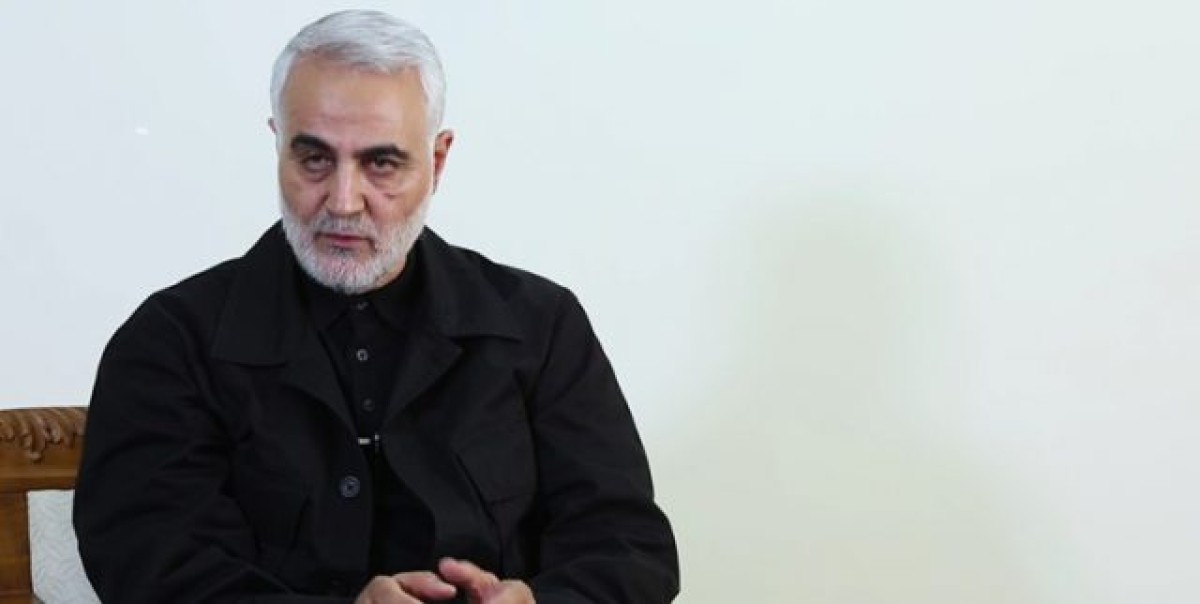
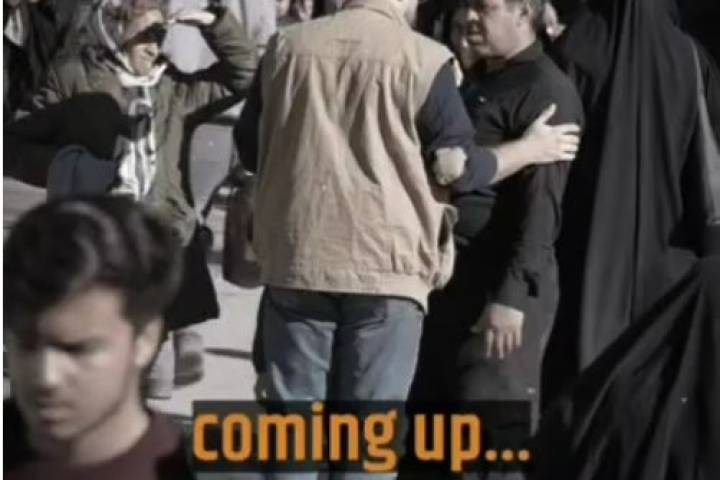
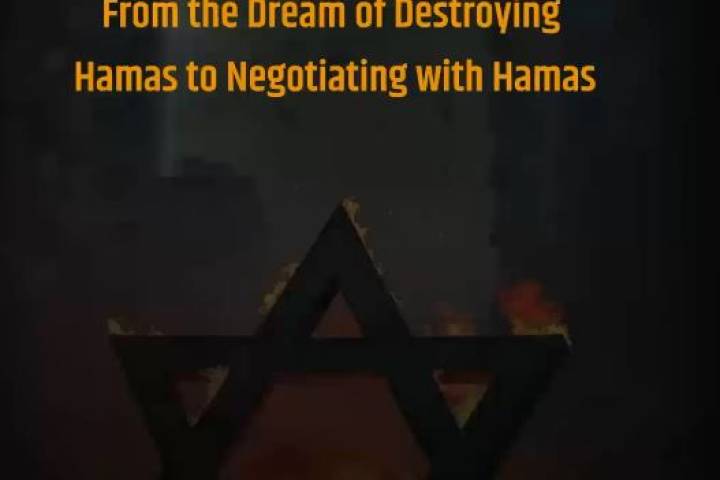
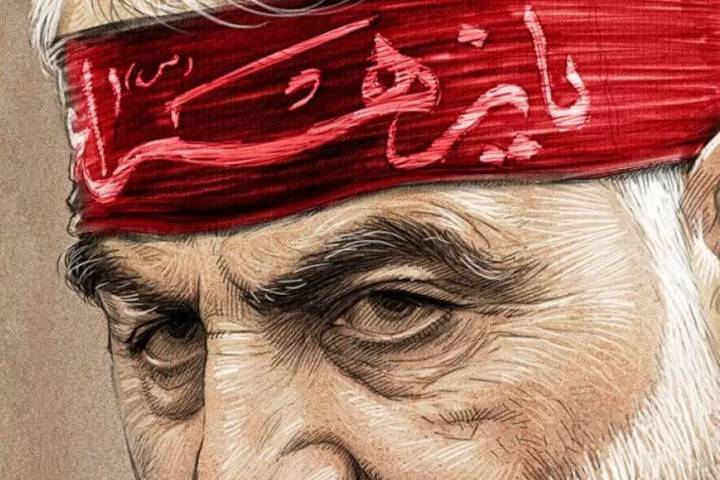
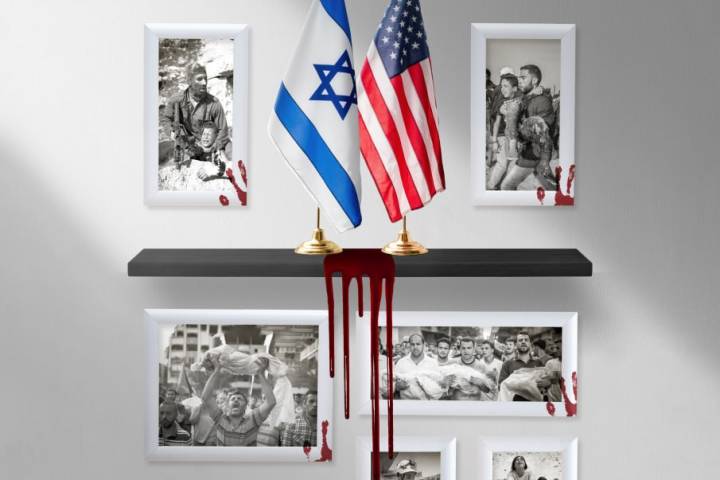
Comment
Post a comment for this article